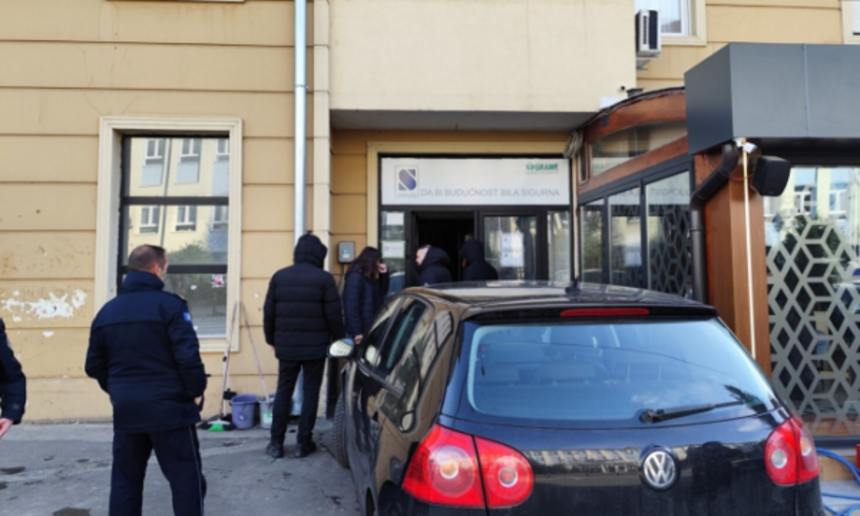On December 27, the Kosovo Police closed another institution operating under the Serbian system – the Public Enterprise for Urban Planning in North Mitrovica – as confirmed to Radio Free Europe by Veton Elshani, the Deputy Director of Police for the Northern region.
He explained that the police acted after receiving information about an institution located in a residential building near the Technical School in North Mitrovica. The information was later verified to be accurate.
“After contacting the prosecutor in the case, the documents found there were confiscated, and several individuals were interviewed. The case has been added to the previous one we had with the parallel structure in North Mitrovica,” Elshani said.
One day earlier, two other Serbian public enterprises were shut down, operating under Serbia’s system: the Directorate for Residential and Business Space and the Directorate for Construction Land.
According to Kosovo’s Minister of Internal Affairs, Xhelal Sveçla, these unlawfully operating institutions had been collecting payments from citizens and businesses for the use of “buildings that were allegedly under their management.”
Meanwhile, the Serbian List, the main political party representing Serbs in Kosovo and supported by Belgrade, stated that the government of Prime Minister Albin Kurti is continuing with “illegal and escalating actions” in northern Kosovo.
The party added that it would meet with the employees of the closed institutions to explore the possibilities for support and assistance that could be offered to them.
Institutions operating in Kosovo under Serbia’s system are considered illegal, which is why their closure has been underway since the beginning of the year.
So far, several temporary municipal bodies, the Serbian Post in northern Kosovo, the Postal Savings Bank, the Pension and Disability Insurance Institute in North Mitrovica, the vault of the Serbian People’s Bank in Leposavić, and some municipal companies have been shut down.
Additionally, Kosovo has banned the use of the Serbian dinar, which has complicated the payment of salaries for members of the Serb community who receive wages from Serbia’s budget.
The Kosovo government has stated that these measures were taken to assert sovereignty, but it has faced criticism from the international community, which urges that these issues be resolved within the framework of the Brussels dialogue to avoid escalating tensions on the ground.
On the other hand, Serbia refuses to shut down its institutions in Kosovo’s territory and has relocated most of them near border points on the Serbian side. /REL







